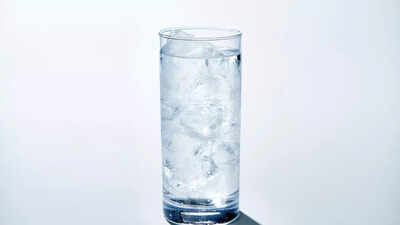The question of whether drinking cold water is detrimental to health has been a subject of debate. While some believe it can negatively impact digestion by causing the stomach to contract, scientific evidence to support this claim is lacking.

Both cold water and water at room temperature are effective for hydration. Many find cold water particularly refreshing after physical activity, as it aids in cooling the body and may offer a slight boost to metabolism. While individuals with sensitive teeth or digestive systems might experience discomfort, most people can consume cold water without any adverse effects. Ultimately, the choice is a matter of personal preference. The most important factor is maintaining adequate hydration, as water, regardless of its temperature, is vital for both mental and physical well-being.
Consuming cold water can have surprising effects on the body. A study conducted in 1978, as reported by Healthline, indicated that cold water could increase the thickness of nasal mucus, potentially hindering its passage through the respiratory tract. In contrast, the study found that hot water and chicken soup had the opposite effect, facilitating easier breathing.
Cold water may worsen symptoms for those with specific health issues. Research suggests a link between cold water consumption and the triggering of migraines in susceptible individuals (as shown in a 2001 study). Furthermore, a 2012 study indicated that cold water could exacerbate achalasia symptoms, a condition that affects the passage of food through the esophagus.
Traditional Chinese medicine posits that drinking cold water alongside hot food disrupts the body's balance, explaining why meals are often accompanied by warm water or tea. Similar beliefs exist in other cultures, such as the notion that cold water on a hot day may not provide true cooling relief. However, additional research is needed to either confirm or refute these traditional claims.
Reports suggest that drinking cold water can offer several benefits:
Drinking cold water may offer a modest contribution to weight loss. Potential benefits include:
Newer articles
Older articles
 India Enters New Space Age as Astronaut Shukla Joins ISS Mission
India Enters New Space Age as Astronaut Shukla Joins ISS Mission
 X Cracks Down: Half a Million Indian Accounts Suspended for Policy Breaches
X Cracks Down: Half a Million Indian Accounts Suspended for Policy Breaches
 Google Unveils Strategy to Combat Misinformation, Boost Voter Access in India's 2024 Elections
Google Unveils Strategy to Combat Misinformation, Boost Voter Access in India's 2024 Elections
 Hair Oil vs. Hair Serum: Which is the Right Choice for Your Hair?
Alternatively:
Unlock Your Best Hair: Choosing Between Hair Oil and Serum for a Healthy Mane
Hair Oil vs. Hair Serum: Which is the Right Choice for Your Hair?
Alternatively:
Unlock Your Best Hair: Choosing Between Hair Oil and Serum for a Healthy Mane
 Bollywood's 'Swades' Anthem Joins Axiom-4 Mission: Indian Astronaut's Playlist Honors Heritage in Space
Bollywood's 'Swades' Anthem Joins Axiom-4 Mission: Indian Astronaut's Playlist Honors Heritage in Space
 Vijay Sethupathi Apologizes Amid Controversy Over Son's Film 'Phoenix'
Vijay Sethupathi Apologizes Amid Controversy Over Son's Film 'Phoenix'
 New York Assemblyman Zohran Mamdani's Style: 5 Lessons in Authenticity and Heritage
New York Assemblyman Zohran Mamdani's Style: 5 Lessons in Authenticity and Heritage
 Colon Cancer: Don't Ignore These 5 Early Warning Signs
Colon Cancer: Don't Ignore These 5 Early Warning Signs
 TSMC Regains Top 10 Global Value Ranking Amid AI Boom
TSMC Regains Top 10 Global Value Ranking Amid AI Boom
 Android Users Urged to Update Devices Amid High-Severity Security Flaws: Government Issues Warning
Android Users Urged to Update Devices Amid High-Severity Security Flaws: Government Issues Warning